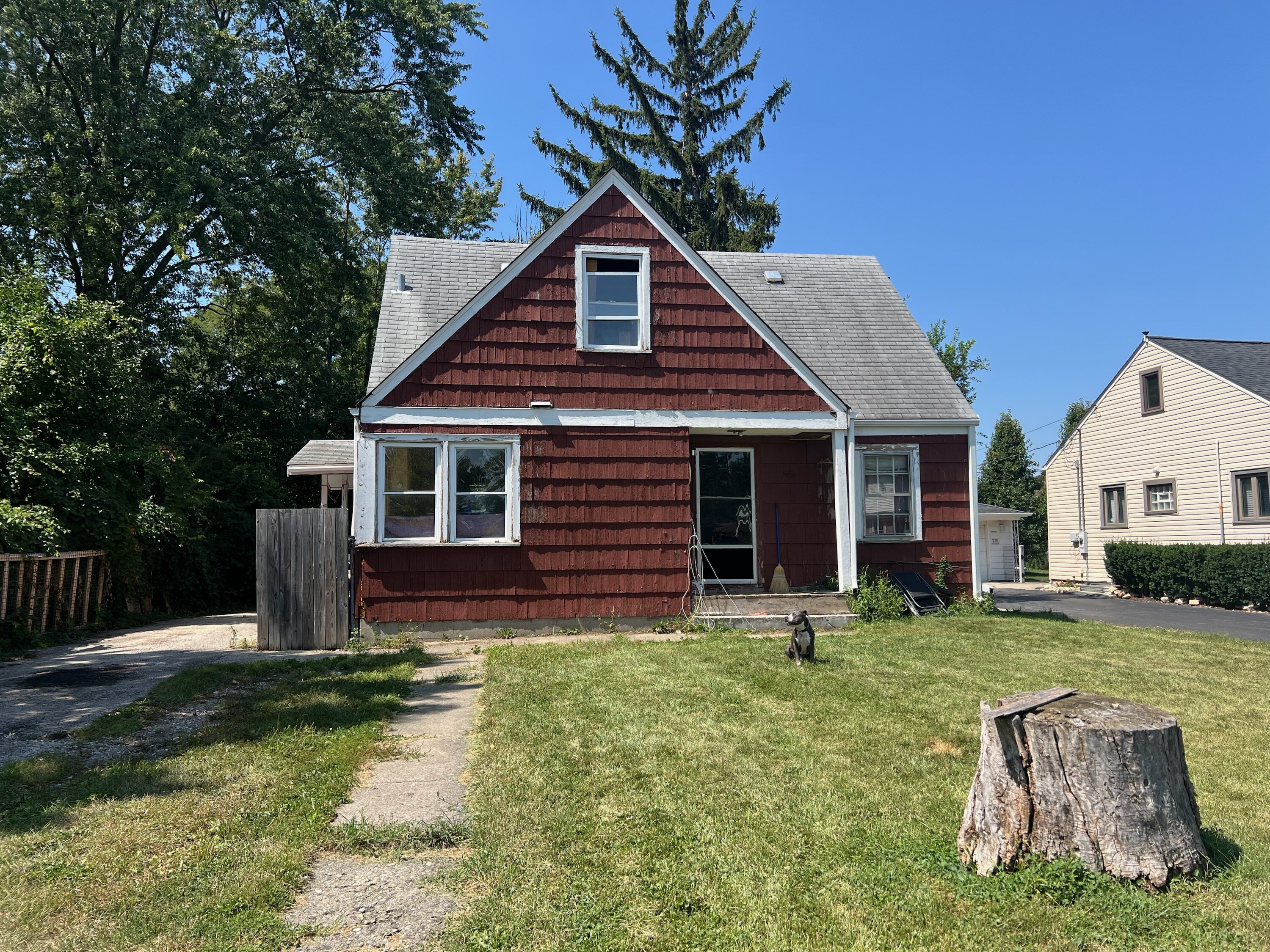Do you need to sell a house that needs work? You don’t have to feel stuck or fearful of all the impending expenses! We have put together some great tips to help you sell your Chicago home… even if it needs some work!
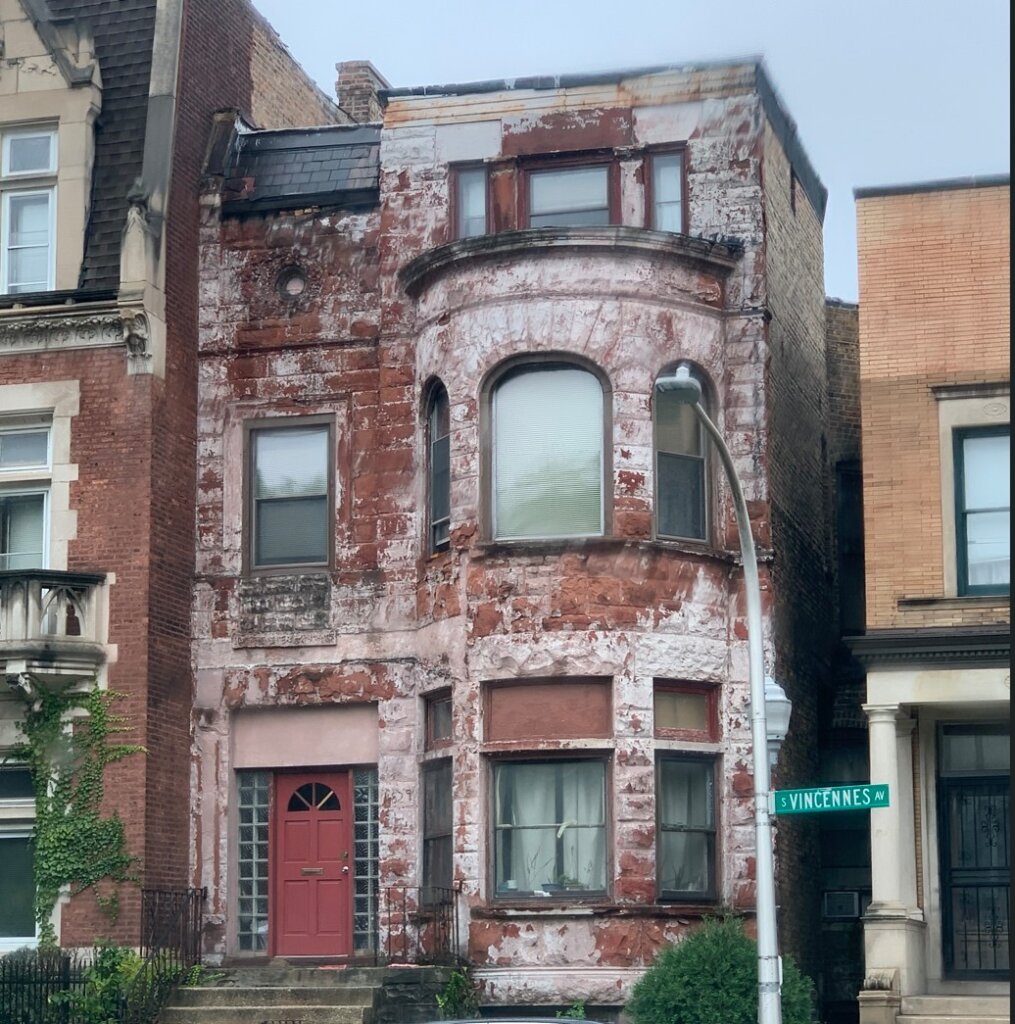
The reality is that selling a house requiring significant repairs can feel overwhelming, especially in today’s competitive Chicago real estate market. Many homeowners find themselves trapped between the high costs of renovations and the fear of losing money on an as-is sale. However, you have more strategic options than you might realize, and with the right professional approach, you can successfully sell your property while maximizing your return.
Whether you’re dealing with outdated systems, structural issues, or simply cosmetic wear and tear, this comprehensive guide will walk you through proven strategies to sell your Chicago home efficiently and profitably.
Understanding Your Chicago Market Position
Before diving into repair strategies, it’s crucial to understand where your property stands in the local market. The Chicago real estate market has unique characteristics that can definitely work in your favor when selling a fixer-upper.
Properties needing work often attract specific buyer segments: real estate investors, house flippers, and buyers looking for below-market entry points. These buyers understand renovation costs and are often willing to move quickly for the right deal.
Strategy 1: Smart Repairs That Maximize Impact
Not all repairs are created equal. The key is identifying which improvements will provide the highest return on investment without requiring substantial capital.
High-Impact, Low-Cost Improvements
Fresh Paint Throughout A fresh coat of paint is arguably the most cost-effective improvement you can make. Choose neutral, modern colors that appeal to the broadest audience. Focus on high-traffic areas and any rooms with dated or damaged paint. See this Homes & Gardens article on stylist paint design trends in 2025.
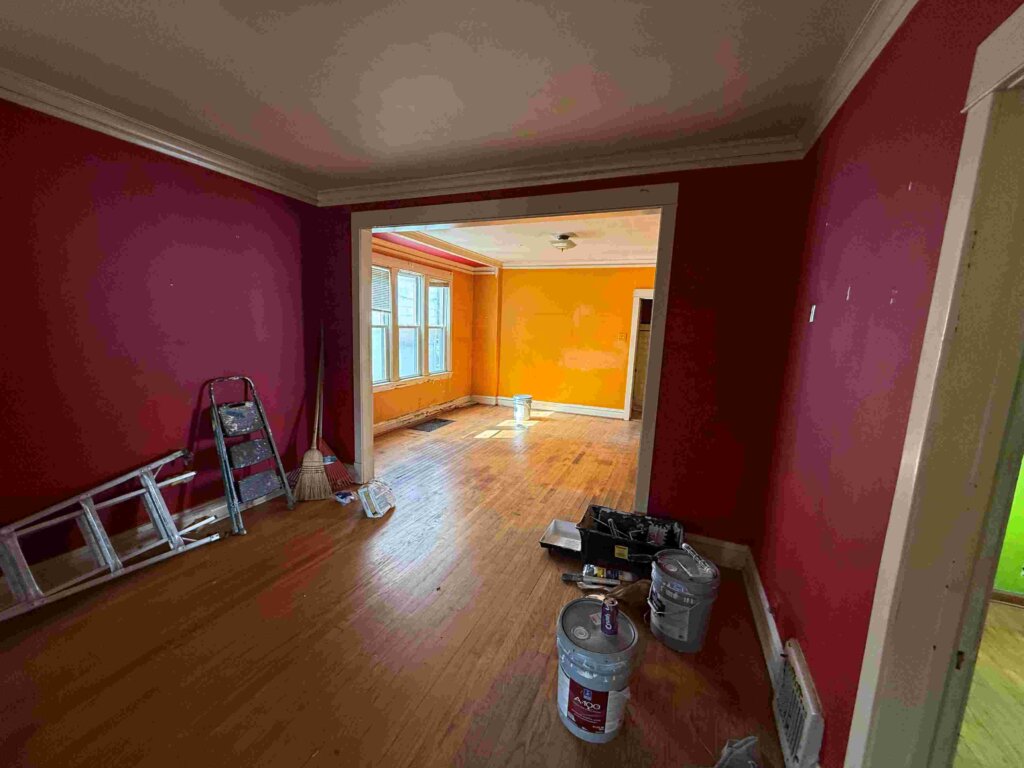
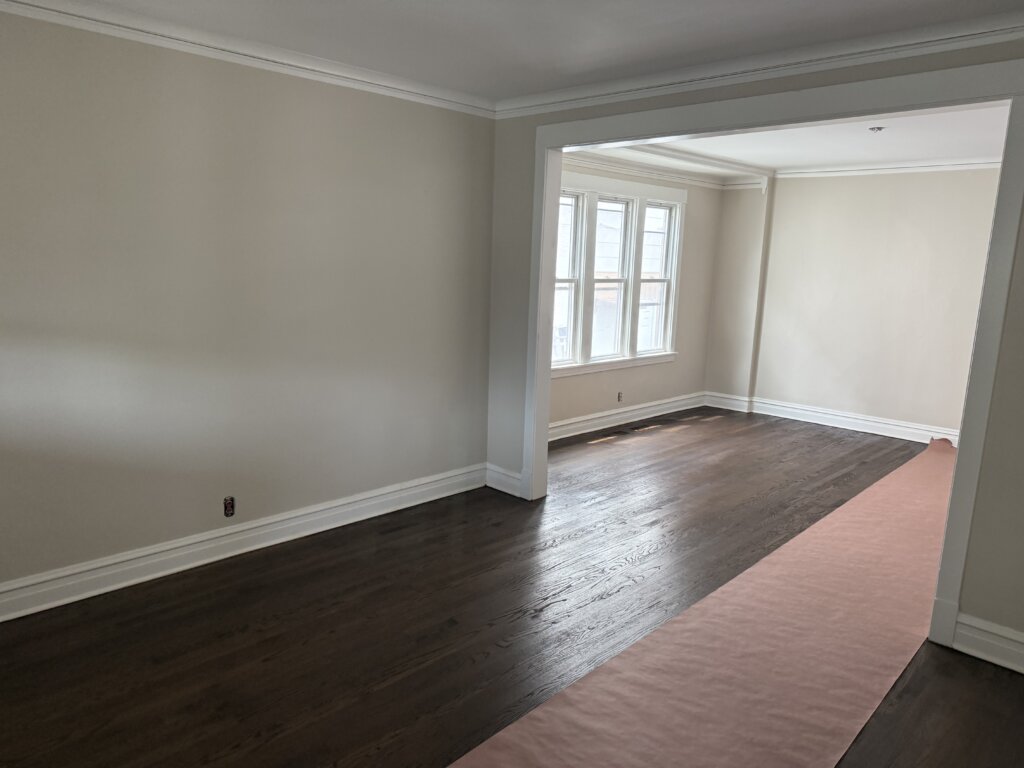
Before/after photos showing the impact of fresh paint on room appearance
Curb Appeal Essentials First impressions matter enormously. Invest in basic landscaping, power washing exterior surfaces, and ensuring the front entrance is welcoming. Simple improvements like new house numbers, a fresh front door, or cleaned windows can significantly impact buyer perception.
Basic Cleaning and Decluttering Deep cleaning costs very little but makes an enormous difference. Remove personal belongings, repair obvious holes in walls, and ensure all systems are functioning safely.
Read more about the 7 Must Do Repairs to sell quickly without breaking the bank
What Not to Fix
Avoid major renovations unless absolutely necessary for safety or legal compliance. Kitchen and bathroom overhauls, flooring replacement, and major structural work typically don’t provide sufficient return when you’re planning to sell quickly.
Strategy 2: Targeting Cash Buyers and Real Estate Investors
The most efficient path to selling a house that needs work often involves connecting with buyers who specialize in these properties.
Building Your Investor Network
Real Estate Investment Groups Connect with local real estate investment associations, attend networking events, and build relationships with investors actively seeking properties in Chicago.
Presenting Your Property’s Investment Potential
Create a simple investment analysis showing:
- Current property value as-is
- Estimated repair costs
- After-repair value (ARV)
- Potential return on investment
This professional approach demonstrates that you understand the market and helps investors make quick decisions.
To learn more about what our real estate buying program is at Braddock Investment Group, fill out the form and we’ll contact you within 24 hours to discuss the property.
Strategy 3: Highlighting Your Property’s Unique Advantages
Every property has selling points, even those requiring significant work.
Location Benefits
Emphasize proximity to schools, transportation, shopping, or upcoming developments. In Chicago, location many times trumps condition for the right buyer.
Architectural Features
Historic details, unique layouts, large lots, or original hardwood floors can be major selling points. These features often can’t be replicated in newer construction.
For instance, the Chicago Bungalow Association emphasizes the historical beauty in bungalows built all over Chicago.

Future Potential
Help buyers visualize the property’s potential through staging, mood boards, or even simple digital renderings of possible improvements.
Strategy 4: Complete Transparency and Legal Protection
Honesty isn’t just ethical—it’s essential for protecting yourself legally and building buyer confidence.
Disclosure Best Practices
Document all known issues and provide them upfront. This includes:
- Structural problems
- System failures (HVAC, plumbing, electrical)
- Previous water damage or flooding
- Environmental concerns
See more about the state of Illinois’s disclosure laws here.
Professional Inspections
Consider getting a pre-inspection to identify all issues before listing. While this requires upfront investment, it prevents surprises and demonstrates transparency to potential buyers.
Strategy 5: Creating Urgency Through Strategic Marketing
Effective marketing can generate competitive interest even for properties needing work.
The Offer Deadline Strategy
Set a specific deadline for offers, typically 7-14 days from listing. This creates urgency and can result in multiple competing offers. Market the property as “seeking highest and best offers by [date].”
Multi-Channel Marketing Approach
- MLS listings targeting investor keywords
- Social media marketing in local real estate and investment groups
- Direct marketing to known investors and flippers
- Auction platforms specializing in distressed properties

You may also opt sell your house on a raffle system, like this home seller did.
Alternative Selling Options in Chicago
1) iBuyers and Cash Buying Companies
Several companies specialize in purchasing homes as-is for cash. While offers may be below market value, they provide certainty and speed.
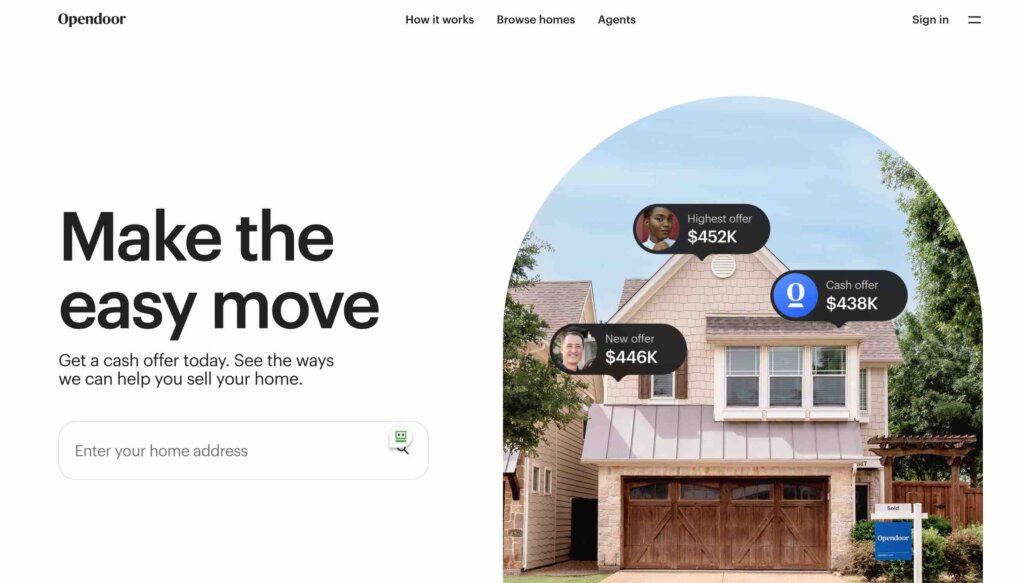
2) Real Estate Auctions
Auction companies can generate competitive bidding for unique or distressed properties. Research reputable auction companies operating in Chicago.
3) Owner Financing
Consider offering owner financing to expand your buyer pool. This can be especially attractive to investors who can close quickly without traditional lending delays.
Pricing Your Fixer-Upper Correctly
Pricing strategy can make or break your sale. Research recent comparable sales of similar condition properties in your area. Consider these approaches:
Competitive Pricing
Price slightly below market to generate multiple offers and potential bidding wars.
Value-Based Pricing
Price based on the property’s investment potential rather than current condition.
Timeline and Expectations
Selling a house that needs work typically takes 30-90 days, depending on:
- Property condition and location
- Local market conditions
- Marketing strategy effectiveness
- Pricing accuracy
Legal and Financial Considerations
Tax Implications
Consult with a tax professional about potential capital gains implications and any deductions for improvements made. If you’re selling an inherited property, you may be in luck for some favorable tax treatment. See our article about tax consequences when you sell an inherited house.

Title Issues
Ensure clear title before listing. Address any liens, judgments, or ownership questions that could complicate the sale. Call your local title company, like Alliance Title, to request a title report.
Professional Support
Consider working with a real estate agent experienced in distressed property sales, especially if you’re unfamiliar with investor transactions.
Conclusion
Selling a house that needs work in Chicago doesn’t have to be a burden. With the right strategy, transparent communication, and realistic expectations, you can successfully transfer your property to buyers who appreciate its potential. Whether you choose to make strategic improvements, target investor buyers, or explore alternative sale methods, the key is taking action rather than letting the property continue to deteriorate.
Remember, every day you delay is another day of carrying costs, potential additional deterioration, and missed opportunities. The Chicago market has buyers actively seeking properties like yours—you just need to connect with them effectively.
Start by implementing the high-impact, low-cost improvements, then develop your marketing strategy to reach serious buyers. With patience and the right approach, you’ll be able to close this chapter and move forward with confidence.

